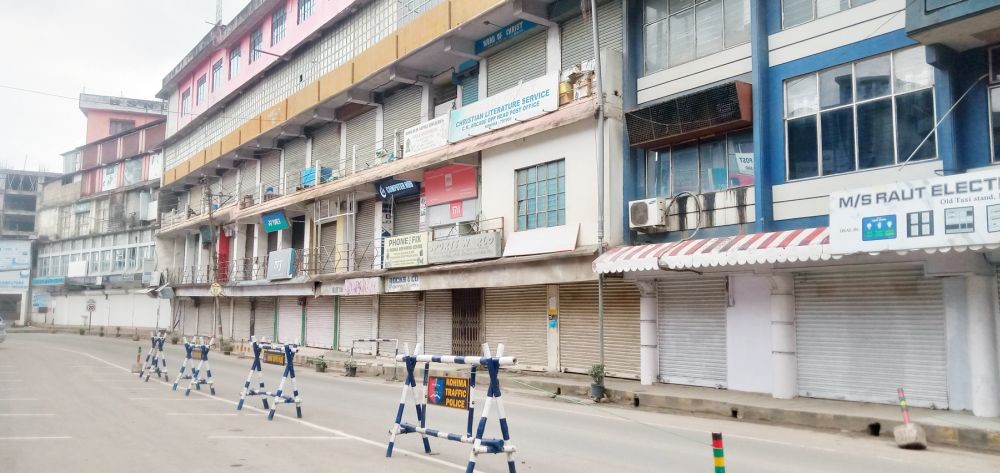The Kiphire Town Chamber of Commerce and Industries has banned the use of plastics in Kiphire town since January 1 this year. While a proper waste management system still needs to be put in place, the ban has been well received by denizens of Kiphire Town. (Morung Photo)
.jpg)
In need of an effective waste management system
P. Achumse Yingbithongru
Kiphire | February 10
There are increasing concerns about the use of plastics in our day-to-day lives. Owning up to the responsibilities toward a sustainable future, Kiphire Town Chamber of Commerce and Industries (KTCCI), as part of its sustain initiative on ‘Safe Environment & Kiphire Polythene Free Town,’ has enforced complete ban on the use of plastics by business establishments within Kiphire Town with effect from January 1 this year.
Kiphire is a land uniquely blessed with amazing landscapes overlooking Mt. Saramati surrounded by rolling hills and rivers. However, of late, with expanding population and rapid urbanisation, Kiphire has been facing several environment-related problems such as obstruction of drains, groundwater contamination, denuding the fertility of the land and affecting aquatic life due to the rampant use of plastics and shortcomings in the waste management system.
To mitigate the already polluted environment Litingse Yingbthongru, Chairperson of KTCCI, said that the decision to ban plastics has seen an overwhelming response from the denizens of Kiphire. But he also maintained that to make the campaign against the use of plastics successful, scientific approach has to be adopted by setting up of a waste management system.
Echoing the view shared by the KTCCI Chairperson, Deepak Verma, a prominent businessperson, was of view that the momentum on ban of plastics should not be a one-time solution but should lead to more structural change in the way we preserve and protect the environment.
At present, the production of plastic in the world is about 100 Million tonnes per annum and it is growing at 4 per cent per annum. On an average, every Indian generates around a kilo of plastic waste every year. Much of it is scattered on and around the litter stack, which in turn spreads environmental pollution.
Dumping of plastic waste just around Zunki River, a tributary of Chindwin River, has been a matter of environmental concern as it has been affecting aquatic life in the river. However, with the ban on plastics in place, things are starting to look up toward a cleaner environment.
With the ban on plastics coming into force, there has to be an alternative way to address the change from use of plastic bags to paper bags. After the ban on plastic, it has been learned that business community of Kiphire is buying paper bags from Dimapur as the raw materials for making paper bags is not available in Kiphire.
Taking the opportunity Kiphire Town Council Administrator needs to make arrangements to set up paper bags manufacturing unit. This will help the economy of Kiphire and provide employment opportunities to the youth. Fight against plastics will achieve its objective once significant financial incentives are provided to popularize the use of paper bags.
Stefen Yingbithongru, General Secretary of Kiphire Town Students Union (KTSU), sharing his views said plastics ban by KTCCI is a step in the right direction towards a sustainable future. At the same time, it is an opportunity for the youth and women to start paper bags business.
KTCCI drive has to be backed by government by setting up proper waste management system. With scientific approach, waste can be turned into wealth through recycling which will benefit the local and minimize pollution.
The Ministry of Environment and Forests released Recycle Plastic Manufacturing and Usage Rules in 1999, which were modified in 2003 under the Environment (Protection) Act, 1968 in order to regulate and manage plastic bags and other material property.
In 2002, polythene bags had to be banned in Bangladesh because they had become the cause of floods in many areas. In such a situation that calls for taking corrective measures to protect the environment from harmful effect of plastic, special drive by KTCCI is laudable.
Now more than the ban itself, what matters is how the ban is embraced and taken forwrad by the public.




